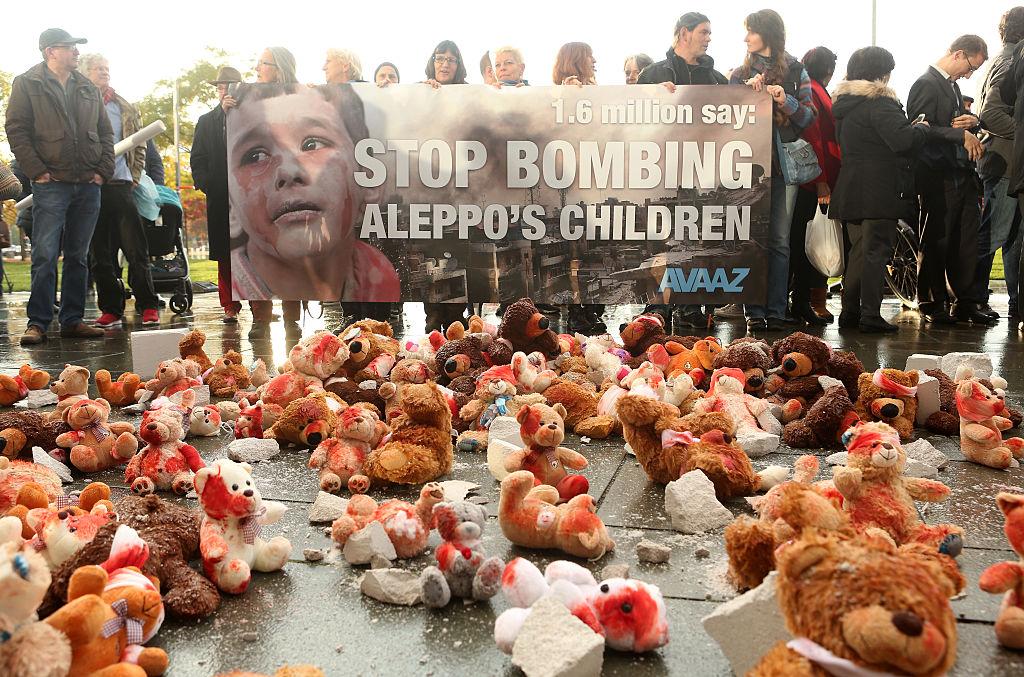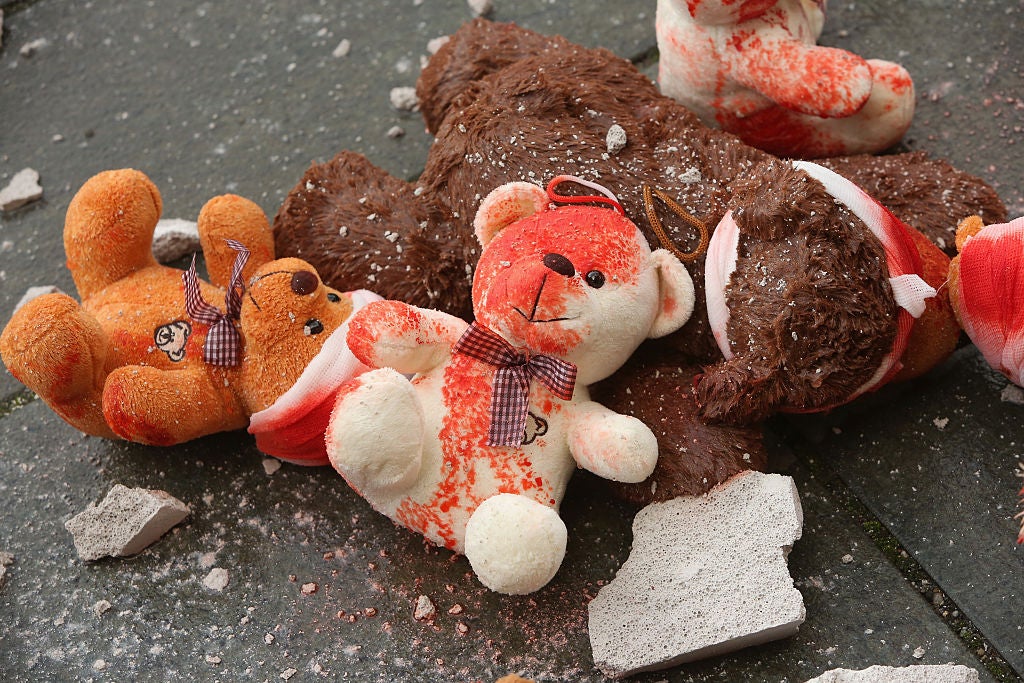'Stop bombing Aleppo's children': Blood-stained teddy bears in Berlin have message for Putin
Demonstrators protest outside German parliament building ahead of Russian president’s visit for meeting of the ‘Normandy Four’, while EU threatens sanctions

Teddy bears and other toys wearing bloodied bandages have been piled outside the Reichstag in Berlin as a protest against visiting Russian President Vladimir Putin, whose support for air strikes in Syria has killed approximately 500 people in besieged east Aleppo.
The bears lay in the rain next to rocks and gravel symbolising rubble, while several hundred demonstrators from protest group Avaaz held banners reading ‘Stop Putin’ and ‘Stop bombing Aleppo’s children’ and chanted anti-war slogans after marching through the city centre to the Reichstag at the same time the Russian president arrived in Berlin on Wednesday evening.
Mr Putin visited German Chancellor Angela Merkel for a meeting of the Normandy Four - Russia, Ukraine, France and Germany - to discuss the Minsk Protocol, a peace plan aimed at resolving the conflict in Ukraine after Russia annexed the peninsula of Crimea in 2014.

Ms Merkel and French President Francois Hollande said during a media conference that Moscow had been warned that the European Union is considering further sanctions on Russia over the country’s assistance to Syrian President Bashar al-Assad in bombing rebel-held areas of Syria. Talks continued in Brussels on Thursday.
Air strikes over the last month on east Aleppo, where 250,000 civilians are trapped, constitute war crimes, several governments and international bodies have said. Moscow and Damascus maintain that strikes only target terrorists, who use the city’s population as human shields.
“Everything that can constitute a threat can be useful,” Mr Hollande said late on Wednesday.

The two leaders did say that there had been progress on implementing the Minsk Protocol in Ukraine. The US had threatened to renew sanctions on Russia if action was not taken in coming months.
Before the escalation of Russian involvement in Syria and the crisis in Aleppo, EU officials had been considering easing the wide-ranging sanctions Russia has suffered for its conquest of Crimea. Such an option is now very unlikely, as several countries have called for tougher economic penalties.
Thursday also saw the start of a three-day-long ceasefire in Aleppo which Russia said would allow medical evacuations and an amnesty for any rebels or civilians who wished to leave the siege barricades for neighbouring rebel-held Idlib province.
The EU “strongly condemned” Moscow regardless, calling for a permanent cessation to air strikes.
Russia used its veto as a permanent member of the Security Council to block action on Aleppo at the United Nations last week.
Member states will also discuss the refugee crisis, considering aid deals with African countries designed to stem the flow of people from Libya and Egypt across the Mediterranean, a deadly journey which has killed 2,500 people in the first half of 2016 alone.
Join our commenting forum
Join thought-provoking conversations, follow other Independent readers and see their replies
Comments
Bookmark popover
Removed from bookmarks